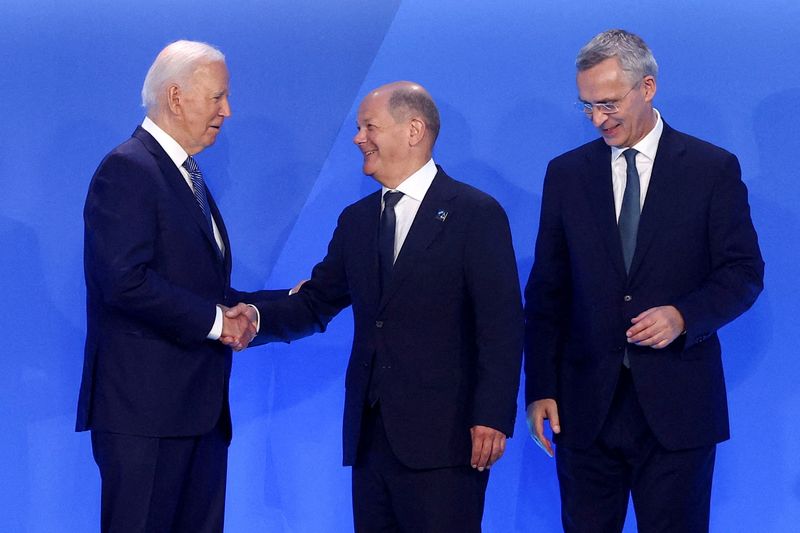Echoes of Cold War: US missile plan draws mixed response in Germany
2024.07.11 11:28
By Andreas Rinke and Matthias Williams
BERLIN (Reuters) -A plan to allow the deployment of U.S. long-range missiles in Germany drew praise and misgivings on Thursday, as supporters said it made Europe safer and critics warned it could antagonise Russia and spark a new arms race.
The agreement, made public during a NATO summit in Washington, is to deploy capabilities from 2026 including SM-6, Tomahawk and developmental hypersonic weapons with a longer range than European powers have.
The issue could increase tensions in Chancellor Olaf Scholz’s coalition and provide campaign fodder for the far-right Alternative for Germany (AfD) party ahead of local elections in east Germany in September when it is expected to perform well.
Germany is one of several NATO countries that host U.S. nuclear weapons, and domestic opposition to such deployments stretches back to when then-West Germany was a front-line state during the Cold War.
Moscow called it an escalatory move and vowed a response.
“We have long been grappling with the question of how we can ensure a deterrent that secures our own alliance territory, but also Germany, with conventional options,” Scholz told reporters in Washington.
“This decision has been a long time in the making and comes as no real surprise to anyone involved in security and peace policy,” he added.
Nils Schmid, a spokesperson for Scholz’s Social Democrats, told Reuters “this is a necessary step to deter Russia”.
The opposition conservatives, who – given the unpopularity of Scholz’s centre-left coalition – could be in power by the time the missiles are deployed, also endorsed the move.
However, Scholz’s Greens coalition partner complained it had not been properly kept informed about the decision and that it contradicted a budget deal only agreed after long and difficult negotiations.
The AfD, which opposes German weapons deliveries to Ukraine as it battles Russia’s invasion, and is seen by critics as overly friendly with Moscow, said the U.S. missile decision made “Germany a target”.

“Chancellor Olaf Scholz is not acting in Germany’s interest,” said AfD leader Tino Chrupalla. “He is allowing Germany’s relationship with Russia to be permanently damaged and we are falling back into the pattern of the East-West conflict.”
The leftist Die Linke party called the decision “highly problematic” and could launch a new arms race under the guise of deterrence. Sahra Wagenknecht, who leads a new leftist party that also opposes sending weapons to Ukraine, called it “highly dangerous”.








